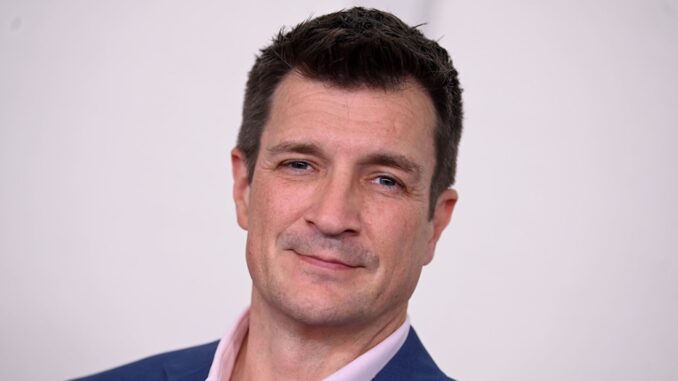
The Quiet Power of "Don't Like It? Don't Watch It."
The digital age, for all its boons, has forged a new arena for public figures: the relentless, often unvarnished, and frequently vitriolic landscape of online criticism. Where once actors and artists were shielded by the remove of the silver screen or the proscenium arch, they now find themselves directly in the crosshairs of a global, anonymous, and often entitled audience. For a beloved figure like Nathan Fillion, an actor whose career spans cult classics like Firefly to mainstream hits like Castle and now The Rookie, this arena can be particularly unforgiving. Yet, when faced with the inevitable torrents of negativity concerning his current show, Fillion didn't lash out, offer lengthy explanations, or engage in a digital shouting match. Instead, he delivered a masterclass in economy of expression, a simple five-word statement that served as both a shield and a mic drop: "Don't like it? Don't watch it."
This seemingly blunt retort, uttered by a man known for his charm and affability, cut through the noise with surgical precision. It wasn't an angry outburst; it was a calm, almost zen-like declaration of boundaries. For context, The Rookie, a procedural drama where Fillion plays John Nolan, an older man who becomes the LAPD's oldest rookie, has enjoyed considerable success. However, like any long-running series, it has seen shifts in tone, character arcs, and narrative focus, inevitably leading to a vocal segment of fans expressing their displeasure online. From complaints about specific storylines to critiques of character development, the digital sphere became a cacophony of often unconstructive feedback, blurring the lines between genuine criticism and entitled demands for creative alteration.
Fillion’s five words dismantled this dynamic with elegant simplicity. "Don't like it?" acknowledges the existence of dissent without validating its premise. It doesn't deny the critic's right to their opinion but immediately places the onus back on them. It’s an invitation to introspection: Is my displeasure so profound that it dictates my continued engagement? This part of the statement, delivered from someone who has spent decades honing the art of audience connection, carries an implicit understanding of the relationship between creator and consumer.
But it's the second part, "Don't watch it," that truly elevates the statement from a mere clap-back to a profound declaration. It is a powerful affirmation of agency, not just for Fillion and the creative team, but for the audience themselves. It reminds the disgruntled viewer that their consumption is entirely voluntary. No one is holding a gun to their head, forcing them to endure content they no longer enjoy. In an era where "cancel culture" and fan entitlement often bleed into aggressive online campaigns demanding changes or even the removal of creators, Fillion's words are a radical act of reclamation. He wasn't begging for approval or defending every creative choice; he was subtly yet firmly stating: Our work is our work, and your engagement is your choice.
The impact of "Don't like it? Don't watch it" extends far beyond the confines of The Rookie fanbase. It serves as a potent reminder for anyone navigating the complexities of digital interaction, particularly those in creative fields. For artists, writers, musicians, and even content creators of all stripes, it underscores the importance of maintaining artistic integrity in the face of external pressure. It encourages a focus on the work itself and the audience it does resonate with, rather than becoming derailed by a vocal minority determined to dictate terms. It’s a quiet testament to the freedom of creation – the understanding that while feedback can be valuable, not all commentary is constructive, and certainly not all demands must be met.
In a world increasingly mired in performative outrage and the endless loop of online negativity, Nathan Fillion’s concise declaration stands as a beacon of digital hygiene. It’s a lesson in setting boundaries with grace, in disengaging from the noise, and in empowering both oneself and others to choose their consumption wisely. It wasn't an angry retort; it was a simple truth, delivered with the quiet confidence of a veteran who understands that true artistry lies not in appeasing every critic, but in staying true to the story one aims to tell. And sometimes, the most profound statement requires the fewest words.